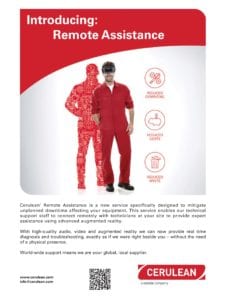Clear Consideration
- This Issue
- October 12, 2020
- 15 minutes read

Credit: Scott Graham

Aquila Solutions helps vapor companies format their PMTA submissions to FDA requirements.
By Timothy S. Donahue
The deadline has passed. Now, for a vapor product to be sold in the United States, it must gain marketing approval in advance from the U.S. Food and Drug Administration (FDA). As technology for vapor products continues to improve, companies will continue to submit premarket tobacco product applications (PMTAs). The regulatory process is arduous, and experts say many of the FDA’s expectations remain vague.
One of the most challenging aspects of preparing a PMTA for submission is structuring and formatting the publication to meet the FDA’s guidelines. While the FDA has provided a format, the regulatory agency doesn’t quite explain how it wants that formatting to come together, according to Josh Boutwell, founder and CEO of Aquila Solutions, a regulatory submission consultation and electronic publishing firm.
“The format, especially for vapor and tobacco products, is extremely questionable. The FDA doesn’t seem to know what they want or know how it should work, primarily because they were rushed into the format,” explains Boutwell. “What that means is that, yes, there is technically a format, but that doesn’t mean that the FDA or any company really knows where things are supposed to go or how they fit together. Do you need to present things, and what order do you put them in? Do you need to duplicate work, duplicate documents? These are important factors in a regulatory submission.” 
Boutwell founded Aquila Solutions in 2010. He had previously worked at major pharma and biotech companies as well as international contract research organizations. In addition to his work in regulatory affairs, Boutwell has worked for the U.S. Centers for Disease Control and Prevention (CDC) in Atlanta, Georgia, as well as conducted research at Emory University.
Since founding Aquila Solutions, Boutwell has managed thousands of projects, including numerous initial regulatory applications. He began Aquila with William McDonald, currently Aquila’s program manager, and the company has slowly grown over the last decade. The past few years, Aquila’s growth has accelerated from 50 percent to more than 150 percent annually. “From last year to this year, we have roughly tripled our production,” says Boutwell.
Aquila Solutions specializes in regulatory publications. For the vapor industry, the company takes data and documents provided by a client and puts them together in a way that “tells a story” to the FDA that is centered on why the submitted application is a product that is beneficial for public health. “The data is meaningless if the FDA can’t find it,” Boutwell explains. Aquila Solutions became involved in publishing PMTAs for next-generation tobacco product clients through word of mouth, according to Business Development Manager Robert “Buddy” Abercrombie. Even though Aquila at the time had not done work for the vapor sector, it had considerable experience dealing with the FDA. When a customer disappointed with the service of its existing publishing company inquired about Aquila’s services, Aquila set up a meeting and researched the PMTA process. “We got the job,” says Abercrombie.

The PMTA process is challenging. Many filers are former traditional tobacco employees, and technology has changed since most tobacco companies made submissions. PMTAs for traditional tobacco products were often submitted in paper form. While paper submissions may still be tendered, the FDA now prefers to receive electronic submissions. “The electronic nature of the Electronic Tobacco Technical Document for PMTAs means that the way a paper is volumized and just having all the documents all together doesn’t match well with electronic submission,” says Boutwell. “We had clients that really wanted to write documents that are hundreds of pages long, explaining everything all in one document, and then having a limited number of appendices. It is better to break the documents down into smaller components that are easier for the FDA to track electronically. Doing things this way also makes it easier for the sponsor to update a submission in the future.”
Many companies that have filed PMTAs were unprepared for the length of time it takes to collect the required data and the physical size of the applications. Submissions have been reported to be anywhere from 40,000 pages to 1 million pages long (one known submission is more than 3 million pages). All that data needs to be organized in a way that best shows the FDA what the data has concluded. Not properly organizing a submission can have catastrophic results.
“The biggest issue is that the FDA requires things to be broken up in specific ways. And if the PMTA hasn’t been compiled properly, the FDA may kick everything back to have it recompiled by the sponsor,” advises Boutwell. “This could essentially cost a company weeks or months of work. The company may even have to do a lot of duplicate work in order to be able to resubmit it.”
Boutwell says a typical PMTA submission is often between 50,000 pages to 100,000 pages unless there are specific or unusual additions. The first step in the process for Aquila Solutions is setting up standard meetings so everyone involved in the project is “on the same page” and understands what is needed.

“We would discuss the schedule for when documents will come in and make sure we have enough time for checking everything at the end. When documents start coming in, we’ll start figuring out the final structure of the application. Where does it need to go, what does it need to say and how does it interact with everything else?” explains Boutwell. “Then as we actually receive the documents, we process them, make sure they’re usable by the FDA and then create the internal and external links.”
Internal links connect to sections in the same document. External links connect anywhere else. The FDA expects the links to be in the document where they are referenced and only used when necessary.
“The links are necessary, and they must go to where they’re supposed to so that the FDA reviewers can easily analyze your application,” says Boutwell. “Our No. 1 priority is making sure a client’s submission gets through to the substantive review phase. The FDA’s computer servers do their own analysis, and that is followed by an administrative review to make sure that the PMTA is complete enough for a full review.”
Next, the substantive review process can begin. The FDA goes through its scientific process, and before a PMTA is authorized, it goes before the Tobacco Products Scientific Advisory Committee (TPSAC) where it’s decided whether an application meets the standard for the betterment of public health, according to Boutwell.
“Getting the marketing order is the final goal. For Aquila, getting an application accepted is the easy part. The harder part is trying to make the review process as easy as possible for the FDA reviewers. Our experience has been that if you make it too difficult to find things, reviewers will throw up their hands and say, ‘I can’t find it,’” says Boutwell. “Then it’s either outright rejected or the FDA sends you a huge list of questions that they could probably find on their own, but the application was too complicated and time consuming in their view. The point of a PMTA submission is not to make the reviewers miserable. You don’t want a decision-maker annoyed with an application because nothing is where it should be.”
If a PMTA is poorly designed and/or poorly published, the FDA will have more questions than if the PMTA is submitted properly. An application may still get approved because it is technically sound and scientifically sound, but it will be much harder and much more expensive in the long run if you don’t make the effort to make it as user-friendly as possible, explains Abercrombie. “They start off having one question. Then, suddenly, they have 50 [questions]. And then they’ll need more data,” he says. “You set them on that path by handing in an application that just didn’t have it presented in the proper way.”
Vapor industry representatives have repeatedly complained about the vague guidelines provided by the FDA for PMTA submissions and publications. According to them, “They really didn’t give us any guidance on what they wanted, and the only way you can know what they want is after you submit it,” says Abercrombie. “Historically, the FDA uses a five-[year] to six-year rollout process where they propose standards and formats and trial periods and then have it be optional before moving on to it being required. There was none of that for electronic nicotine-delivery system [ENDS] products.”
What’s more, even though ENDS differ substantially from traditional tobacco products, the FDA requires the same data, which is problematic. “We can take tests for [harmful and potentially harmful chemicals] HPHCs, but a cigarette has 5,000 chemical components to it. An e-cigarette has about three,” says Abercrombie. “It’s completely different, and yet they want all this other data.”
Cost is an important consideration in the decision of whether to hire an outside agency for help with a PMTA publication. Boutwell says that submissions due before the Sept. 9 deadline were new projects, so the amount of data was large. Moving forward, the volume of data required—and by extension, the cost—should go down, in part because companies will increasingly be able to reference tobacco product master files in their applications. Boutwell says that, in general, the publishing of PMTA updates costs about $750 and $3 per page for the next 5,000 pages and becomes progressively lower as the number of pages grows. Turnaround could be anywhere from a day to a few months, depending on the size of the submission.
Aquila Solutions has submitted 13 major PMTA applications, including quite a few for leading vapor industry companies. The company has done a variety of e-liquids, hardware and even some nicotine lozenges. Several of its applications have already been accepted and filed by the FDA while others are in their administrative review phase.
“We’ve been able to manage the large projects with clients who have never done this before. I mean, at the time, we hadn’t done it before either, but we had background on how the FDA operates with these types of applications,” says Boutwell. “We were able to help guide our clients to get all their documents in place, written acceptably well, and put together and submitted on the client’s timeframe.”
Looking ahead, Boutwell expects to see a lot of consolidation in the vapor industry. Yet he also can see a scenario where new companies start up after products begin to gain marketing approval.
“There’s going to be a continual influx of new companies to the market. There’s going to be some, I suspect, relatively rapid turnover as well. It’s such a big potential market,” he says. “There will always be someone willing to step up. And then, after some of these applications are approved, there will be a lot of the follow-up products that in many ways will rebuild the market. But that’ll take a couple of years.”
If Boutwell could offer the FDA one bit of advice, he’d suggest the agency pay close attention to the ways its system processes incoming files. Some of the applications Aquila sent to the FDA wouldn’t go through the regulatory agency’s Center for Tobacco Products (CTP) portal. It turns out that the server behind the CTP portal had trouble processing files with “.sas” extensions.
“When you have programs that go with your databases, you need to make sure that they don’t cause issues when you upload data,” says Boutwell. He recommends CTP rename all “.TXT” extensions on SAS files.
Customer reviews for Aquila Solutions have been positive. Many clients say that they appreciate Aquila’s flexibility in getting the job done, according to Boutwell. “The first thing they do is compare us to their previous experience of going through a nightmare to having someone hold their hand and working with them, helping guide them through the maze,” he says. “We are here to support anyone who has an application or wants to submit one.”